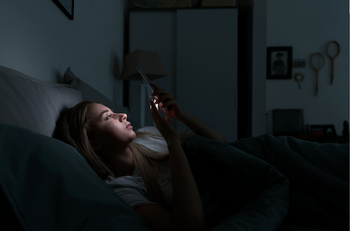By Push Doctor
Everything you need to know about Seasonal Affective Disorder (SAD)
What is Seasonal Affective Disorder (SAD)?
SAD is a type of depression that occurs during the winter months, when we can expect shorter days, darker nights and cold temperatures. Symptoms of SAD will start to appear around the same time every year but disappear gradually as spring time arrives.
SAD often affects those who live further away from the equator, where shorter days and reduced levels of sunlight can be experienced two factors which are believed to exacerbate SAD. Symptoms often begin to appear in young adults but can start at any age.
What causes SAD?
Seasonal changes such as the darker months of autumn and winter, and the lower levels of sunlight during the daytime, are believed to disrupt the biological clock, which in turn, affects serotonin and melatonin production.
Serotonin is a chemical in the brain that affect people's mood, so reduced serotonin levels could be a major contributor in the development of SAD symptoms.
Melatonin is created in the body when it is dark and is responsible for helping us sleep. When it gets lighter, the body usually stops producing it, but SAD sufferers may have higher-than-usual levels of melatonin in their system altering their sleep patterns and making it harder for them to get up and feel well rested.
SAD symptoms
SAD affects people in different ways. The symptoms are like those seen in depression and generally occur in the autumn and winter months. Here are the symptoms to look out for:
- Mood swings and/or persistent low mood
- A loss of interest in normal everyday activities
- Irritability and the feeling of anger
- Feeling worthless and low self-esteem
- Lack of energy, despite getting enough sleep
- Feeling the need to sleep more
- Getting out of bed becomes more difficult
- Gaining weight and feel the need to eat more, particularly carbohydrates
Here's what you can do about SAD
There are multiple ways that SAD can be treated, which all depends on the type and severity of the symptoms a person is experiencing. SAD treatment may include:
Medication In extreme cases of SAD, antidepressants can be prescribed by a doctor. It is believed that antidepressants are most effective when they are taken at the start of winter, before symptoms begin in earnest.
Cognitive Behavioural Therapy (CBT) CBT is designed to help you change the way that you think, feel and act in certain situations, helping you feel happier and more confident overall.
You may have multiple sessions, which could be conducted in a group or one-to-one setting, depending on what will work best for you. There are also computer-based programs that may be useful for combating SAD.
Light therapy Many people find that SAD lights can significantly improve their mood during the winter months, although evidence is inconclusive.
SAD lights are extremely bright lights designed to help replace sunlight, and therefore restore the body's serotonin and melatonin production to normal levels. Lights suitable for this aren't available on the NHS, but can be easily bought online. Make sure the light you buy is approved for the medical treatment of SAD, though.
Self-help
It is recommended that you speak to a doctor if you think you're suffering with SAD. Along with their advice on treatment, there are several ways to ease SAD symptoms with lifestyle changes and healthy habits such as:
- Obtaining as much natural sunlight as possible
- Letting lots of light into your home
- Avoiding stressful situations whenever possible
- Eating a healthy, well-balanced diet
- Exercising outdoors regularly
- Talking to family and friends, so that they understand how SAD affects you and how they can support you.
Most popular
Related articles

What is stress?

Insomnia & Sleep Anxiety